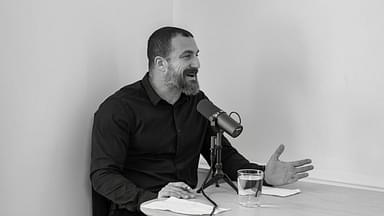Fitness experts have debated the most optimal meal to consume post-workout for decades. Neuroscientist Dr. Andrew Huberman often provides his input on the topic, backed by research and his theories. If the goal is to replenish the body with its lost nutrients and aid in recovery, one needs to focus on the cellular level.
In his recent podcast, Dr. Huberman explains the importance of carbohydrates and their role post-workout. According to some scientific observations, an intense workout that lasts an hour or so leads to a stress response in the body. To combat this, the neuroscientist recommends carbs as a meal.
After morning workouts, especially when an individual has fasted the night before, the body goes through increased levels of cortisol, white blood cells, and so on. This could also be because of sleep deprivation or a stressful lifestyle, which leads to inflammation.
Consuming carbohydrates at this stage is helpful to combat that inflammation. A hearty bowl of oatmeal, rice, or pasta should do the trick and reinforce the body’s healing capabilities. The neuroscientist even recommends fruits to help in the process.
“Complex carbohydrates and fruit post-exercise has been shown to attenuate to reduce some of the markers of inflammation by about 30–40% when contrasted with water-only intake.”
The results are enhanced when one trains fasted. This means that if one hasn’t consumed a proper meal in hours, has caffeine for a pre-workout, exercises for about an hour, and consumes carbohydrates within the next hour, it heals the inflammation well.
“A nice bowl of oatmeal, some fruit, and a protein drink or some eggs after an hour or so of exercise in the morning, when I haven’t eaten anything since the night before, tastes really, really good.”
Even in terms of an optimum pre-workout, Dr. Huberman recommends caffeine as a great source of energy. However, are there any rules for the consumption of caffeine in the morning?
Dr. Andrew Huberman lays the blueprint for efficient caffeine intake
A strong cup of coffee often highlights the morning routine of many people across the globe. For fitness enthusiasts, it serves as the perfect pre-workout as it gives the energy boost necessary for an hour-long exercise session. Dr. Huberman talked about this in a previous podcast.
View this post on Instagram
While the neuroscientist had initially recommended keeping the daily morning caffeine intake on standby until 90 minutes after waking up, he had exceptions to this rule. If the daily morning cup of coffee was a pre-workout choice, then Dr. Huberman recommended refraining from waiting. Workouts are more efficient with these structures laid down by the neuroscientist.





